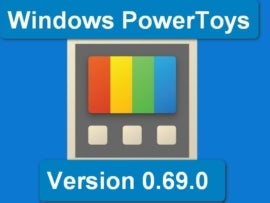-
Gusto: Best for global payroll needs
-
QuickBooks Payroll: Best for companies using QuickBooks solutions
-
Square Payroll: Best for small businesses
-
Paychex: Best for startups
-
Rippling: Best for remote teams
-
ADP Run: Best for businesses that need an easy-to-learn payroll software
-
SurePayroll: Best for businesses new to payroll
-
Justworks: Best for SMBs that need a scalable solution
The more complicated payroll gets, the more you’ll need to lean on software or services that can help keep the chaos at bay. If your operating system of choice is macOS, you have plenty of payroll software options.
Let’s look at some of the top payroll software for Mac users so you can decide if one of these solutions is the perfect fit for your needs. Most of the top payroll services and applications are not Mac specific, though each of these tools can either be used via an installed client app or the Safari web browser.
Jump to:
- Feature comparison of top payroll software for Mac users
- Most popular payroll software for Mac users
- Important features for payroll software
- Trending payroll software
Feature comparison of top payroll software for Mac users
| Feature | Gusto | QuickBooks Payroll | Square Payroll | Paychex | Rippling | ADP Run | SurePayroll | Justworks |
|---|---|---|---|---|---|---|---|---|
| Time tracking | Yes | Yes | Yes | Yes | Yes | Yes | Yes, via third-party integrations | Yes |
| Direct deposit | Yes | Yes | Yes | Yes | Yes | Yes | Yes | Yes |
| Compensation administration | Yes | Yes | Yes | Yes | Yes | Yes | Yes | Yes |
| Payroll reports | Yes | Yes | Yes | Yes | Yes | Yes | Yes | Yes |
| Tax-filing integration | Yes | Yes | Yes | Yes, via third-party integration | Yes, via third-party integration | Yes | Yes, via third-party integration | Yes, via third-party integration |
| Payroll processing | Yes | Yes | Yes | Yes | Yes | Yes | Yes | Yes |
| Reporting and analytics dashboards and tools | Yes | Yes | Yes | Yes | Yes | Yes | Yes | Yes |
Most popular payroll software for Mac users
Gusto: Best for global payroll needs

Gusto is payroll software that can file taxes in multiple states and offers considerable support for contract workers. Gusto’s interface is easy to use regardless of how much experience you have with payroll, and with powerful onboarding tools, it won’t take long to get your entire staff ready to go from the outset.
Features
- Every payroll form you can imagine, which means you can be certain your staff and other workers will get paid whether it’s via direct deposit, paper check or many other methods.
- Employee management includes payroll as well as vacation time, sick leave, multiple pay rates and more.
Pros
- Gusto is a great payroll software option for companies that need to pay workers payroll in the U.S. and outside of the U.S.
- Integrates with other services including Xero, Clover, Trainual, TSheets and QuickBooks.
- The free Gusto Wallet app, available for iOS and Android, can help employees track and and access their pay.
Cons
- Tax calculations can be difficult.
- Inability to sign documents.
- Prices will be too steep for some organizations.
How much does Gusto cost?
- Demo: You can request a demo from the company.
- Simple plan: $40 per month plus $6 per month per person.
- Plus plan: $80 per month and $12 per month per person. For a limited time, Gusto Plus is $60 per month and $9 per month per person.
- Premium plan: Exclusive pricing. Contact Gusto for details.
- Contractor-only plan: This plan is for contractor-only businesses. Contact Gusto about how to get a discounted base price of $0/mo for 6 months.
QuickBooks Payroll: Best for companies using QuickBooks solutions

QuickBooks Payroll has seamless solutions for integrating bookkeeping, accounting and payroll, so your data seamlessly moves back and forth. One advantage QuickBooks has over many other solutions is that it integrates with other QuickBooks products to create a full-featured payroll, accounting and tax platform. QuickBooks is also very well known, so hiring accountants and payroll staff familiar with the tools shouldn’t be a problem.
Features
- Intuit Workers’ Comp payment service integration, which is seamless because both products are from Intuit.
- Powerful reporting tools that surpass most offerings on the market to ensure you have all of the information you need.
Pros
- Great for startups.
- Outstanding transaction tracking.
Cons
- Updates can be challenging.
- Error corrections can require a support team.
- Reports can be very complicated.
How much does QuickBooks Payroll cost?
- Payroll Core plus QuickBooks Simple: Starts at $27.50 per month plus $5 per employee per month.Currently running a promotion for $15 per month.
- Payroll Core plus QuickBooks Essentials: $50 per month plus $5 per employee per month. Currently running a promotion for $27 per month.
- Payroll Premium plus QuickBooks Plus: $80 per month plus $8 per employee per month. Currently running a promotion for $42 per month.
For more details, read the QuickBooks Payroll and Bookkeeping pricing matrix. QuickBooks offers a 30-day free trial period.
SEE: QuickBooks Payroll review (2023): Pricing, features, pros and cons (TechRepublic)
Square Payroll: Best for small businesses

Square Payroll is payroll software that is best suited for small businesses, retailers and restaurants that also use Square POS. The apps and services are so easy to use that anyone can get up and running with Square Payroll in no time. That ease of use is especially handy for sole proprietors using an LLC or small businesses that can’t afford a separate accounting department to handle payroll.
Features
- Easy integration with Square POS, which can greatly simplify your workflow.
- Automatic and unlimited pay runs, which means your payroll department works smarter, not harder.
Pros
- Instant payment option if an employee needs to be paid on the spot.
- Contractor-only plan, which costs $5 per contractor per month.
- Supports payment via checks, direct deposit and even Cash App.
Cons
- Customer support can be slow.
- Charges a per-employee fee, which can get pricey for larger organizations.
- No accountant login feature.
- No option for splitting deposits into different accounts.
How much does Square Payroll cost?
Pricing for Square Payroll starts at $35 per month, plus $5 per person paid per month.
Paychex: Best for startups
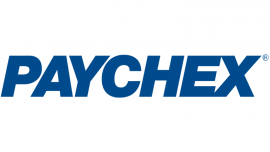
Paychex is payroll software with hiring and onboarding tools. It equips your business with easy-to-complete online forms, personalized messaging, automation of paperwork collection and even onboarding videos.
Paychex is an outstanding option if you’re operating a sole venture or a startup. There are flexible plans with a special package for solopreneurs with access to payroll, 401(k) and incorporation services, but Paychex has offerings for any business, including SMBs and enterprises.
Features
- Automatic tax calculation.
- Job candidate screening.
- Learning management so your employees can learn about the employee portal options, which gives employees access to a considerable knowledge base to learn more about their finances.
Pros
- Mobile apps for Android and iOS.
- Standard analytics and reporting.
- Very simple and guided setup.
- State unemployment insurance services.
- Includes FinFit, which enables employers to offer benefits such as financial wellness assessments.
- Employee assistance program.
Cons
- UI can be clunky.
- Very steep learning curve.
- Expensive for smaller teams.
- Support can be slow.
How much does Paychex cost?
Paychex starts at $39 per month plus $5 per employee per month. If you need more than the basic services, contact Paychex for a pricing quote.
SEE: Paychex review (2023): Features, pricing and alternatives (TechRepublic)
Rippling: Best for remote teams

Rippling is a full HR solution with features for payroll, benefits management, time and attendance tracking, learning management and more. This software can meet the needs of small companies or businesses with more than 2,000 employees.
If your business relies heavily on technology and needs to be able to run a global payroll, Rippling is an excellent option. Rippling offers support for both local and international payments, and it’s also modular, so you only pay for what you need and/or want.
Features
- Offers more than 500 integration options.
- Features for remote teams such as the automatic setting of an employee home address for taxes and device shipping.
Pros
- Automatic tax calculation.
- Plenty of third-party integrations to add even more features.
- Great UI.
- Payroll analytics.
- Easy management tools.
Cons
- Support is not on par with other payroll software options.
- Rippling can get very expensive.
- Very steep learning curve.
How much does Rippling cost?
Rippling starts at $8 per month per user. Each module that you add on will increase the cost, and you’ll need to request a custom quote to find out exactly how much the solution will run your company.
SEE: Rippling review (2023): Pricing, features, pros and cons (TechRepublic)
ADP Run: Best for businesses that need an easy-to-learn payroll software
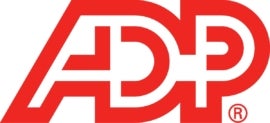
ADP Run is a payroll solution that will accommodate business growth without a steep learning curve. This suite of cloud-based tools covers payroll and human capital management.
ADP Run is suitable for small businesses and large enterprises and includes options for Professional Employer Organization, which enables you to seamlessly upgrade your ADP plan without having to change providers. Even better, ADP’s ample supply of documents can make it much easier for businesses without accounting or payroll departments to get the most out of the platform.
Features
- Payroll tax and compliance.
- Multiple payment options: Direct deposit, paychecks and even Wisely.
- Check signing, stuffing and delivery services.
- Secured payroll checks.
- Tax compliance support.
- Fraud protection.
- Plenty of third-party integrations to help expand the feature set.
Pros
- One of the most user-friendly interfaces on the market.
- Plenty of records and documents.
- Shallow learning curve.
Cons
- Pricing isn’t transparent: To find out how much the service will cost, you must request a custom price quote.
- The GPS tracking feature is limited.
- Complicated setup.
How much does ADP Run cost?
You need to contact the company to get a custom quote.
SurePayroll: Best for businesses new to payroll
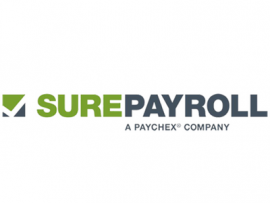
SurePayroll is a very interesting payroll software option if you don’t want to deal with complicated setups and simply want to get to the task of paying staff. Even SurePayroll’s basic plan includes unlimited pay runs, auto-payroll, new-hire reporting and access to HR advisers. SurePayroll also caters to the payroll needs of restaurants, nonprofits and other similar businesses and organizations. SurePayroll offers mobile apps that make it possible to run payroll from anywhere.
Features
- Plenty of tax features to help make filing easier.
- Plenty of online tools to help you calculate salaries, taxes and deductions.
- Contractor, hourly and salaried payroll processing.
- Employee benefits support for things like retirement, health insurance and pay-as-you-go workers’ compensation plans.
- Third-party software integrations.
- Employee self-help portals.
Pros
- Outstanding onboarding and payroll processing.
- Very well-designed UI.
- Multiple vertical payroll types.
- Possible integrations with other accounting services such as FreshBooks AccountEdge, Xero, Less Accounting, Sage 50, QuickBooks Online and Zoho Books.
- Employee alerts for payments processed
Cons
- Added fees for management of W2s and 1099s.
- No custom reports.
- Onboarding can be confusing.
- Initial setup must be spot on, or problems will arise later.
How much does SurePayroll cost?
Pricing of SurePayroll starts at $19.99 per month plus $4 per employee per month for the DIY tax option. The full-service package is $29.99 per month plus $5 per employee per month. The software integrations cost extra.
Justworks: Best for SMBs that need a scalable solution
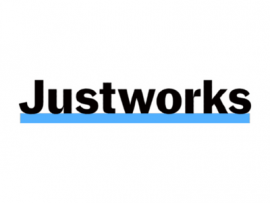
Justworks is an all-in-one platform that offers payroll, benefits, compliance and HR tools. This streamlined payroll product simplifies everything to make it possible for a new business to hit the ground running with very little downtime due to complex UIs and systems.
Justworks just works. With 24/7 support, your business will have all the help it needs getting up to speed.
One of the biggest benefits of Justworks is its PEO option, which provides small businesses with corporate-level perks like access to health insurance benefits and compliance training.
Features
- Off-cycle payments.
- Vendor and contract payments.
- Employment practices liability insurance.
- 401(k) management.
- PTO management.
Pros
- Department-separated directory.
- Medical benefits customer servicing.
- Shallow learning curve.
Cons
- It can get very pricey.
- Time-off calculation doesn’t include future time-off days.
- Based on numerous reviews from multiple sources, reporting tools aren’t the best.
How much does Justworks cost?
The Basic plan is $99 per month per employee, and the Plus plan is $99 per month per employee. To find out what features are included with each plan, take a look at the Justworks pricing matrix.
Important features for payroll software
A good payroll software service should at least include a minimum feature set that looks something like this:
- Time tracking.
- Support for direct deposit.
- Compensation administration.
- Employee self-service portal.
- Payroll reports.
- Tax filing integration.
- Payroll processing.
- Reporting.
More advanced features could include compliance management, statutory compliance, audit reports, user-defined salary structures, tax tables, labor reports and withholding calculations.
Ultimately, your payroll solution should do one thing very well: help you stay on top of the company payroll. If you can find payroll software that helps to automate some of that particular workflow, it will reduce costs by ridding your accounting of errors, creating a more efficient and effective workflow, and saving time with processing.
For more payroll software options, read about the best payroll software of 2023, the 8 best international payroll services for 2023, the best payroll software for your small business in 2023, why businesses are spending more on productivity tech and the best HR analytics software.







